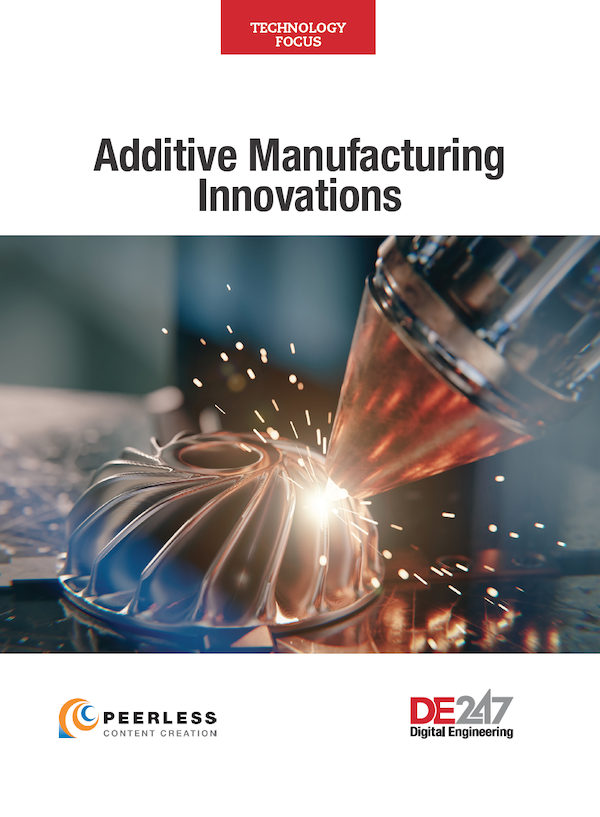Ford Built Its New Explorer Using Formlabs SLA and SLS 3D Printers
Ford's development center, PD Merkenich, was one of the first companies to get their hands on Form 4, Formlabs’ latest MSLA 3D printer.

3D printing enables the team to produce inserts for molding different designs and rapid iterations quickly using their in-house industrial injection molding machine. Image courtesy of Ford and Formlabs.
Latest News
August 22, 2024
Ford, which plans to sell exclusively electric vehicles (EV) in Europe by 2030, works with PD Merkenich, which serves as a development center, responsible for designing all passenger vehicles for the European market from the ground up. This includes models such as the Fiesta, Focus, Kuga and the all-electric Explorer, the first EV for the European market, which recently entered serial production in the Cologne assembly plant. PD Merkenich’s Rapid Technology Center helps create rapid prototypes for product development.
PD Merkenich’s first Formlabs printer was a Form 2, but they scaled up their fleet to multiple desktop units and a Form 3L large-format SLA 3D printer. Most recently, they were one of the first companies to get their hands on Form 4, Formlabs’ latest MSLA 3D printer.
“The Form 4 is very fast, I think it is the best machine that I’ve seen until now in terms of speed. It's really a very good upgrade compared to the previous models. It’s easier to operate, so it's much easier for the operators in our workshop to learn how to work with the machine and get parts with good quality,” says Bruno Alves, additive manufacturing expert and tooling specialist at Ford.
For the new Explorer, the team leveraged SLA 3D printing to validate the design of exterior and interior parts.
“The Form 3L enables us to print big parts, for example, exterior body parts for the vehicle. We printed this mirror cap to validate a design. 3D printing is suitable for this application because it's fast and we can have very good quality compared to mass production parts,” says Alves.
The self-supporting nature of SLS 3D printing makes it easier to produce complex designs. For the new Explorer, the team used the Fuse 1+ 30W to produce mechanical parts and assemblies.
“For this charging cover, it was important to use SLS, based on the fact that we needed a functional part that would enable us to test the mechanisms. It's a really complex design that we are not able to produce in any other way. We cannot mill this part. We cannot use injection molding to produce just some samples. So the best way is to print in a material that we can test physically,” says Alves.
For the new Explorer, the team produced rubber components for the door handle assembly using 3D printed mold inserts in their in-house injection molding machine.
“This was a complex process because we are using several inserts and there are also several different designs that could have several iterations each. Normally, external injection molding will take maybe two or three months. Internally, using additive manufacturing, we can speed up the process to maybe two weeks, three weeks maximum. For this project, if we had to use external tools, it would have been much more time-consuming and we would not have been able to deliver the parts on time,” says Alves.
Ford's commitment to an electric lineup by 2030 sets a roadmap for the PD Merkenich facility. To hit necessary milestones, the company will have to continue finding new technologies and trying new workflows. Remaining competitive requires them to push the boundaries and integrate new materials, processes, and machinery like in-house tooling and 3D printing, the companies report.
“Our competitors are speeding up the developing process. We need to speed up as well. So the solution is to test new materials, new processes, and new machines coming to market. Currently, if we didn’t have access to additive manufacturing, we would not be able to compete with the competitors, we would not be able to be so fast. 3D printing allows us to, in a shorter time, have the best product that we can offer for the clients,” says Alves.
Sources: Press materials received from the company and additional information gleaned from the company’s website.
More Formlabs Coverage
Subscribe to our FREE magazine, FREE email newsletters or both!
Latest News
About the Author
DE’s editors contribute news and new product announcements to Digital Engineering.
Press releases may be sent to them via DE-Editors@digitaleng.news.






